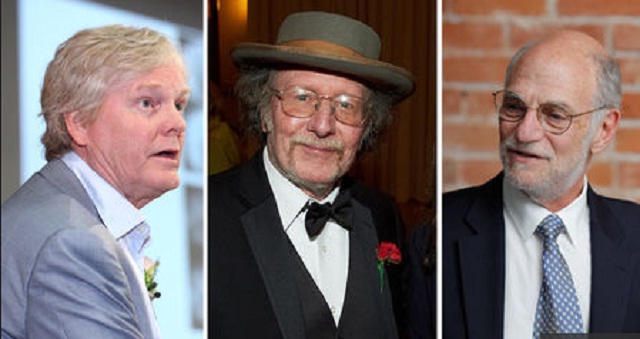
Stockholm, Sweden | AFP | US geneticists Jeffrey C. Hall, Michael Rosbash and Michael W. Young were awarded the Nobel Medicine Prize on Monday for shedding light on the biological clock that governs the sleep-wake cycles of most living things.
The team’s work revealed the role of genes in setting the “circadian clock” which regulates sleep and eating patterns, hormones and body temperature, the Nobel committee said.
“Their discoveries explain how plants, animals and humans adapt their biological rhythm so that it is synchronised with the Earth’s revolutions.”
All life on Earth is tuned to the rotation of our planet. Scientists have long known that living organisms, including humans, have an internal timekeeper that helps them anticipate and adapt to the rhythm of the day.
Hall, 72, Rosbash, 73, and Young, 68, “were able to peek inside our biological clock and elucidate its inner workings,” the jury said.
They identified genes that regulate the clock, and the mechanism by which light can synchronise it.
Rosbash told Swedish Radio he was rattled when the committee’s call woke him from his sleep at 5:10 am.
“I was called on the landline next to my bed which never rings unless someone has died or something of this magnitude happens,” he recounted. “I was breathless, both literally and figuratively. My wife said: ‘Please start to breathe’.”
Young told reporters in New York the prize “really did take me by surprise.”
“I really had trouble even getting my shoes on this morning. You know, I’d go and pick up the shoes and then I’d realise I needed socks and then I’d realise I needed to put my pants on first.”
– ‘Every dimension of health’ –
A disrupted circadian clock is what causes jetlag — which happens when the internal clock and external environment move out of sync as people rapidly change time zones.
The clock also regulates sleep, which is critical for normal brain function. Circadian dysfunction has been linked to depression, bipolar disorder, cognitive function, poor memory formation and some neurological diseases.
Studies have indicated that a chronic misalignment between a person’s lifestyle and the circadian clock — when doing irregular shift work, for example — might be associated with an increased risk for cancer, neurodegenerative diseases, metabolic disorders and inflammation.
Scientists are working hard on methods to alter the rhythm of errant clocks as a means to “improve human health,” the Nobel jury said.
Using the fruit fly as a model organism, this year’s laureates isolated a gene that controls the daily biological rhythm, called the period gene.
“They showed that this gene encodes a protein that accumulates in the cell during the night and is then degraded during the day,” the Nobel statement said.
“Subsequently they identified additional protein components of this machinery, exposing the mechanism governing the self-sustaining clockwork inside the cell.”
The three scientists will share the prize of nine million Swedish kronor (about $1.1 million or 937,000 euros).
“Just about every facet of our body changes predictably over the course of the day and night and these changes are driven by this internal timing mechanism,” Michael Hastings of the Medical Research Council Laboratory of Molecular Biology in Cambridge told AFP.
“Every dimension of our health, every dimension of our personality or reactions to medicines, our reactions to disease are variable and are on the very precise programme set by this internal body clock,” he said.
– Next up: Waves or exoplanets? –
Rosbash, born in 1944 in Kansas City, Missouri, to parents who had fled Nazi Germany, received his doctoral degree in 1970 at the Massachusetts Institute of Technology, and has since 1974 been on faculty at Brandeis University, where he worked closely with Hall on his prize-winning research.
Hall had originally planned to attend medical school when he entered Amherst College in Massachusetts in 1963, but halfway through his bachelor’s degree his curiosity for medicine was replaced by one for basic science.
He went on to earn his doctoral degree in 1971 at the University of Washington, before joining Brandeis University in 1974. He is now retired.
Young received his doctoral degree at the University of Texas in Austin in 1975, and has been on faculty at Rockefeller University in New York since 1978.
On Tuesday, the physics prize laureates will be revealed, with the discoveries of gravitational waves and exoplanets both regularly mentioned as possible winners.
The chemistry prize will be announced on Wednesday, the literature prize on Thursday and the peace prize on Friday. The economics prize will wrap things up on Monday, October 9.
 The Independent Uganda: You get the Truth we Pay the Price
The Independent Uganda: You get the Truth we Pay the Price



